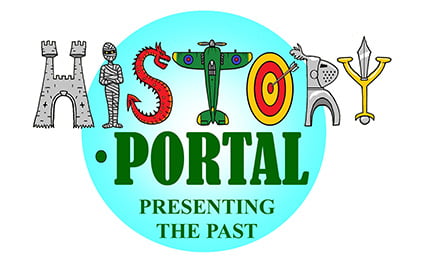
The wheel, something we take for advantage, it seems so logical, but somebody had to invented it.
I imagine the idea of the wheel came the first time someone saw a rock roll down a hillside.
The step that made the wheel useful was when someone came up with the idea of attaching it to an axle. Therefore, the real question should be when did they first come up with the axle?
The first recorded use of this combination was as a potter’s wheel, and this appears to have happened in Mesopotamia around 4000BC. It was not until around 3100 in Ur, also in Mesopotamia, that there are records of wheeled vehicles. Yes, amazingly it took nearly 300 years for the wheel to go from the potter to chariots!
These early wheels were simple wooden disks with a hole for the axle. Some of the earliest wheels were made from horizontal slices of tree trunks. However, this was uneven, so they moved to wheels made from rounded pieces of wood.
Fascinatingly, the Ancient Greeks created wheelbarrows to create first class labour saving devices, which paid for themselves within days.
The horse delays the development of the wheel!
What is interesting is that the development of wheels for modes of transport actually slowed, initially, in the Middle East, as wheels were replaced by camels as a means of transport, then, of course, everyone went to horses. All because they could go anywhere and didn’t need roads!
This led to those superb roads built by the Romans, all over Europe, falling into decay as people realised that horses could use them without requiring the expensive upkeep that roads required as a horse could go anywhere.
It took until the middle ages for roads to be more than just tracks and the use of the carriage gradually came back.
So, who invented the wheel or did anyone?
Isn’t History Fun?
10 questions to discuss:
- Independent Invention: Did different cultures invent the wheel independently, or is there evidence suggesting a single origin point?
- Precursors: Were there any earlier tools or concepts that paved the way for the invention of the wheel?
- Material Evolution: Besides wood, were other materials ever used for wheels in early civilizations?
- Beyond Mesopotamia: Are there any records of wheels being used in other regions around 4000 BC, potentially challenging the Mesopotamian origin theory?
- Impact on Pottery: How did the potter’s wheel revolutionize pottery making, and what specific advantages did it offer over hand-shaping techniques?
- Social Change: Beyond labor-saving benefits, how did the development of the wheelbarrow potentially affect social dynamics and division of labor?
- Beyond Horses: Were there any other factors besides camels and horses that slowed the adoption of wheeled vehicles in certain regions?
- Roman Road Decline: Is there evidence suggesting the decline of Roman roads was solely due to horses, or were there other economic or political factors involved?
- Medieval Innovation: What specific advancements during the Middle Ages led to the resurgence of wheeled vehicles beyond simple tracks?
- Attribution Question: While individuals may not be credited with inventing the wheel, are there any known inventors who made significant advancements in its design or functionality?
These questions aim to explore the broader context of the wheel’s invention, its impact beyond transportation, and the factors influencing its development throughout history.
For more on this click on:

